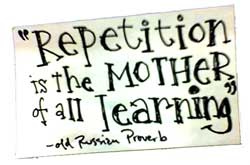Timothy Wellmann
Reflection essay
English 121 Prof. Jenn
12/2/2015
Coming into English 121 this semester I set many goals for myself along with becoming a better writer in the subject overall. I found myself very challenged going into each paper I wrote, but always striving to write to the best of my abilities. Not being that great of a writer myself I found many helpful lessons to take away from this class and also where I think I do very well in my writing.
At the beginning of the semester my goals were to pass the class by putting forth all my effort to get the best grade I could achieve. The reason I set this was because in the past I fell into procrastinating on work way too often. This often kept me from doing my best work. I have achieved this goal this semester by pushing myself to work on my papers weeks in advance and breaking up my work throughout the week. I found this really impacted the quality of my paper for the better. Another goal I had was to work what we learned in class to real world experiences with writing. Our class blogs really helped me with that. Thanks to our blogs I have gained the confidence to create and design a blog of my own in the future. At first I had no clue where to start or how difficult it would be to create and design one. With the help of my group through the semester and working on ours I feel very comfortable working with the tools similar to the ones used in class. Then my final goal for this class was I wanted to use it to become a better writer. I think I have partially achieved this goal. The reason being that I have vastly increased in skills such as I don’t address the reader directly anymore, jump to conclusions, or beg the question in my writing anymore. Also there are still many more aspects in my writing I need to improve upon. Some these include doing my in text citations properly and using correct grammar and punctuation.
The research process of my research paper really surprised me for because most of the information I found was completely against my original thesis. I wanted to write about how more gun control would keep America safe, but as I started my research I found how complicated gun control actually is. This caused my to completely change my thesis into what the information supported. I really enjoyed this part of the research process that I could have a completely changed opinion from what I found. This made my paper more difficult for me since I had to change up my thesis, but I did more research to adapt. I probably did five hours worth of research on top of what I did before I changed my thesis. My favorite part of my essay is when I explain how people with mental illness should be aloud to obtain guns because they are no more dangerous than anybody else. I feel like my instructor will enjoy the opposing argument of my essay. The reason why is I feel like I did a great job on explaining how gun control hasn’t worked in most countries, and that violence rates actually went up. I feel like the weakest part of my essay is where I explain how difficult gun control laws are to pass in the United States. The reason why I feel like this part is weak is because I don’t feel like I explained it in depth enough. The reason why I didn’t make this part longer though is my paper was already over seven pages long and I felt like it was already too long for my subject.
My advice for future students doing research papers is the following. My first piece of advice is to use your online databases. The reason I say this is because the quality of information in the online databases is superb compared to what you will find anywhere else online. Also when doing research make sure you know what you are looking for. If you are not looking for a specific piece of information for your paper you are more likely to get off topic during your writing which can destroy your grade. If future students follow those hints they will avoid some of the problems I ran to in this class, but I believe I have learned from those mistakes. This class has helped me become a better writer and even though I might not be proficient yet, but I will keep striving till I am.









